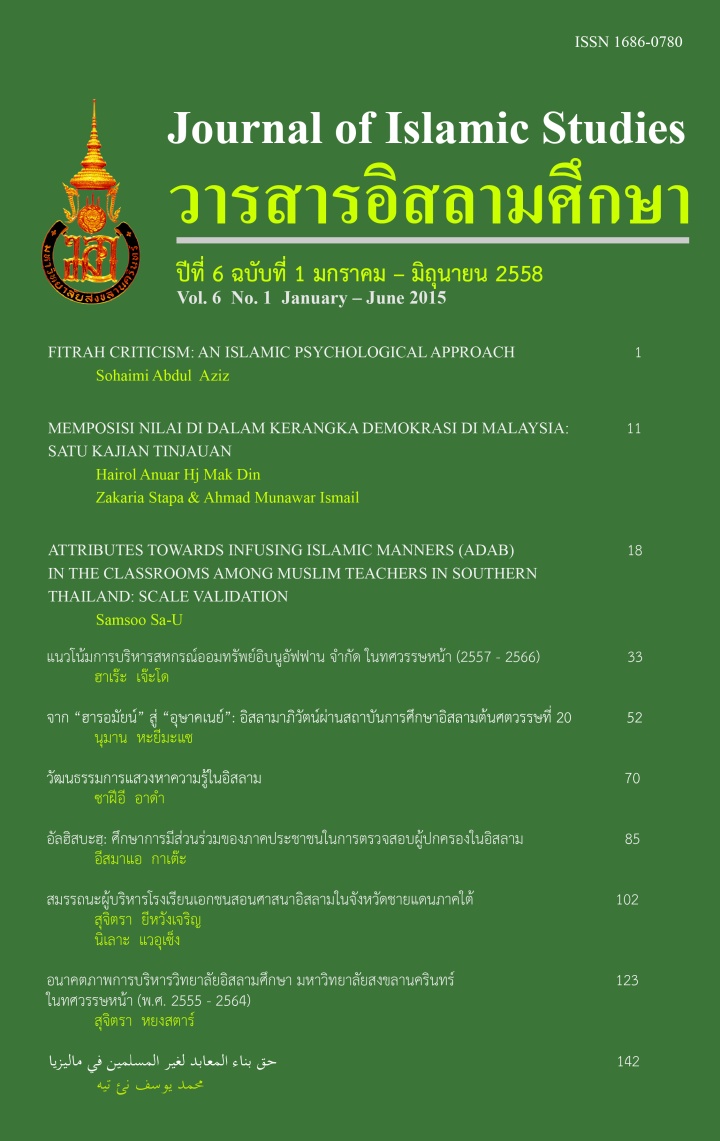Fitrah Criticism: an Islamic Psychological Approach
Keywords:
fitrah, Islamic psychology, fitrah literary criticism, fitrah theatreAbstract
Islamic psychology is the psychology of Self (al-Nafs) and specifically, it is the psychology of spirituality. The significance of Islamic psychology in literary criticism and its contribution to textual analysis haven’t been given their due right. This article is concerned with the implementation of Islamic psychology in Islamic literary criticism which is known as ‘fitrah literary criticism’. Fitrah literary criticism is originally based on fitrah (al-Fithrat) (according to Islam, fitrah is a natural state – the original state in which humans are created by Allah, i.e., God ). The theoretical and conceptual framework of fitrah criticism can be understood in the light of four principles. First, the meanings of fitrah which are derived from the verses of the Qur’an and Hadith. Second, the meanings of fitrah form the pattern of fitrah which consists of three elements; ‘aqidah’ (faith and belief in Islam), ‘ibadah’ (an act of worship and submission to Allah based upon the law of Allah, i.e., shari’ah) and ‘akhlaq’ (disposition, ethics of a person). Third, as a system, fitrah consists of some related psychological elements, namely, Self (nafs), heart (qalb), intellect (‘aql) and spirit (ruh).
Finally, the principle of aesthetic the appropriate literary techniques which literary texts employ to portray the fitrah in an aesthetic manner. This article also explicates the possibility of applying the fitrah literary criticism to literary texts.
Downloads
Published
How to Cite
Issue
Section
License
Copyright (c) 2018 Sohaimi Abdul Aziz

This work is licensed under a Creative Commons Attribution 4.0 International License.
All articles Published in The Journal of Islamic Studies are author’s opinions, and not the responsibility of the Faculty of Islamic Sciences nor the editorial board. However any citation should be referred to the journal.
















